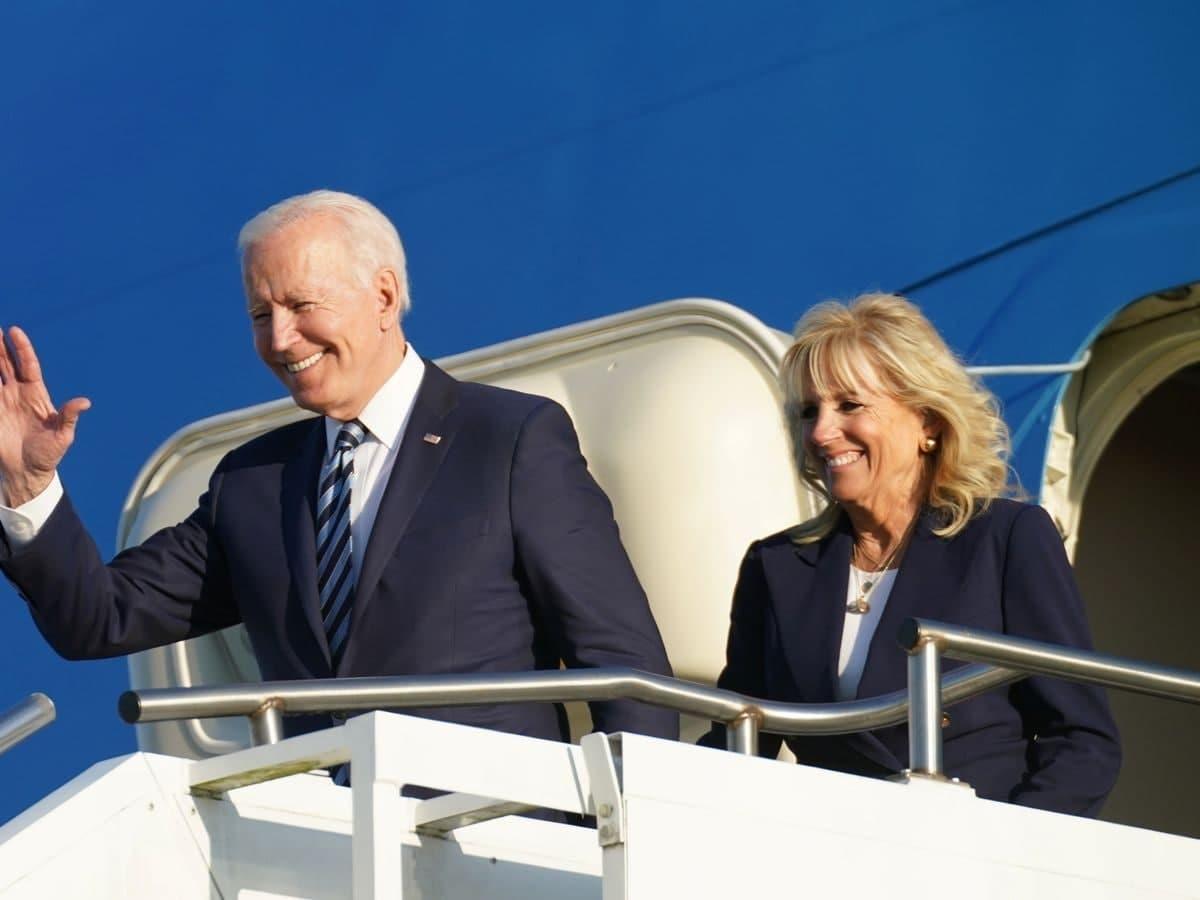MILDENHALL, June 9 (Reuters) - US President Joe Biden arrived in Britain on Wednesday (Jun 9) on his first trip abroad since taking office, an eight-day mission to rebuild trans-Atlantic ties strained during the Trump era and to reframe relations with Russia.
The trip tests the Democratic president's ability to manage and repair relationships with major allies who grew disenchanted with then-President Donald Trump's trade tariffs and withdrawal from treaties.
Biden told reporters as he left for Europe that his goals were "strengthening the alliance, making it clear to Putin and to China that Europe and the United States are tight".
His summit with Russian President Vladimir Putin on Jun 16 in Geneva is the capstone of the trip, an opportunity to raise US concerns directly with Putin about ransomware attacks emanating from Russia, Moscow's aggression against Ukraine and a host of other issues.
He also comes to Europe with a goodwill gesture, the planned announcement that the United States will buy and donate 500 million Pfizer coronavirus vaccine doses to about 100 countries over the next two years, three sources familiar with the matter told Reuters.
Biden is expected to announce the deal on Thursday. The US has faced criticism over securing access to much of the initial stockpile of the most promising vaccines.
Biden will make his first stop of the trip at the seaside village of St Ives in Cornwall where he will participate in the G7 summit. The meeting is expected to be dominated by vaccine diplomacy, trade, climate and an initiative for rebuilding infrastructure in the developing world. US officials see that effort as a way to counter China's growing influence.
Biden will have a meeting with British Prime Minister Boris Johnson on Thursday in Cornwall, a chance to renew the US-British "special relationship" after Britain's Brexit break from the European Union. The two countries will issue an updated joint statement of principles between the two countries in honour of the original Atlantic Charter from 1941.
But the two have deep policy issues to discuss, with Biden set to reinforce stalwart US support for the 1998 Good Friday peace agreement that ended decades of bloodshed in Northern Ireland, according to White House national security adviser Jake Sullivan.
The agreement has come into question with the United Kingdom's exit from the European Union.
Biden and Johnson will also discuss climate change, a proposal to counter China's global influence on infrastructure and the withdrawal of western troops from Afghanistan.
Biden is also expected to discuss concerns over the Russian Nord Stream 2 pipeline with German officials. The Biden administration opposes the US$11 billion natural gas pipeline but Germany wants it finished.
After three days of G7 summitry, Biden and his wife, Jill, will visit Queen Elizabeth at Windsor Castle. The 78-year-old Biden met the queen back in 1982 when he was a US senator from Delaware.
Biden then travels to Brussels for talks with leaders of NATO and the European Union. The agenda is expected to be dominated by Russia, China and the perennial issue of getting NATO allies to contribute more to the common defence.
Biden closes out the trip in Geneva for what could prove to be the most difficult meeting of the week - a session with Putin, who had enjoyed friendly relations with Trump.
